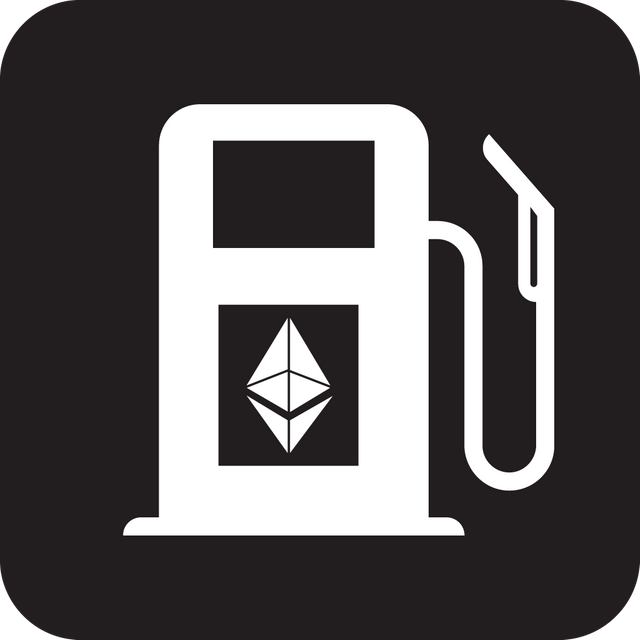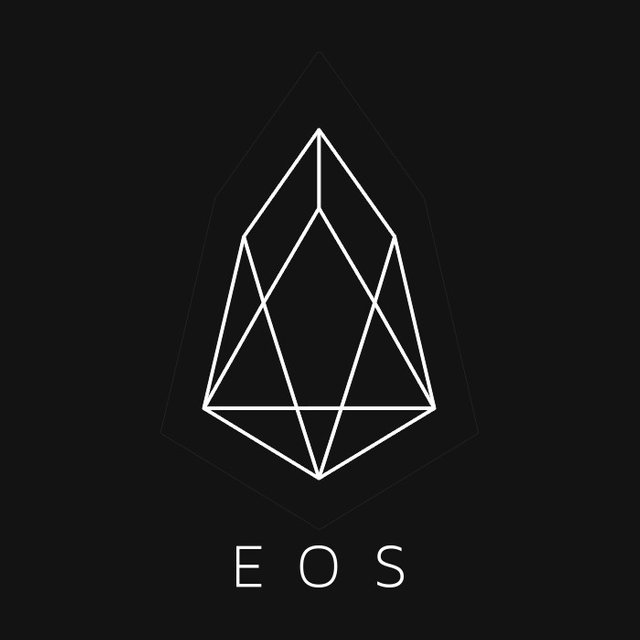A Smart Contract Platform Without Transaction Costs or the Need For 'gas' Will Finally Offer Proper Incentive To DApp Developers. An 'Ownership' Model Will Always Be More Efficient Than A 'Rental' Model In Terms Of Entitlement From Stake.
When developers must continually make micro-payments to continue to run and employ their DApps or contracts, price increases make it much less practical to continue to run and develop applications.
If a developer is testing or employing applications on the Ethereum blockchain, the costs associated with running and hosting their applications are higher than they have ever been. While this doesn't effect users and individuals who have been holding Ether for awhile, the increased token price of Ether makes much harder for a developer new to the Ethereum space to justify purchasing sufficient tokens to temporarily run their application. Even just the gas costs associated with initial development and testing can be enough to turn developers away, which will make it that much harder for the platform to gain adoption. A developer or company that is hosting a large application on the Ethereum network would be faced with higher costs than ever before, and may even effect their ability to continue running the application.

As the value of Ether goes up, the costs associated with purchasing sufficient tokens to host applications also goes up. Ethereum has yet to produce an application to gain serious success or practicality, which would likely make new development on the platform even harder to justify. The miners are the ones who really win when the network experiences a rapid price increase, because the increase in computation power is often behind the increase in price. In order for a Dapp on the Ethereum network to have a chance for success, the developers would need to invest significant resources into the application with the hope that the network would be able to support the activity. Due to the fact that Ethereum counts every 'instruction' that it is given and charges accordingly, the network cannot handle anywhere close to the level of activity that mass adoption would bring.
Why would an 'ownership' model be more efficient than Ethereum's 'rental' model?
Instead of being entitled to the amount of computation power that you are able to pay for on Ethereum, the EOS platform presents an 'ownership' model of entitlement of resources. If you own 1/1000 of the total stake of EOS, then you will always have access to 1/1000th of the total network bandwidth and storage. This will enable developers to have much more predictable costs and will also serve the advantage that instead of hosting costs, it will simply require the individual to maintain a certain percentage or level of stake. If the application developer or company decides to take the application offline, they will have the exact same amount of tokens that they put into the platform. This enables EOS to gain in value as practicality and demand increases, and also will enable EOS to be a long term investment. While I don't mean investment in the traditional sense, I simply mean that the EOS tokens will always entitle the individual to a certain degree of bandwidth and storage.

All stake holders of EOS tokens will have the ability to use the tokens themselves, rent, or delegate their stake to others, and this leads me to believe that many of the large stakeholders will be more than eager to delegate significant amounts of their stake to developers working on promising applications. The determining factor for the success of any smart contract platform or even blockchain project for that matter is if the project is able to offer significant enough incentives to convince individuals to use the blockchain or application. The success of smart contract platform relies heavily on the ability to bring decentralized versions of mainstream applications, while maintaining the advantages that come along with decentralization such as cost savings and increased efficiency. While decentralized platforms aren't always more efficient than centralized platforms, many of the biggest and most popular applications could be vastly improved through decentralization.
Interacting with the blockchain must be free for end users.
Many users may not know this but like EOS users of the Steemit platform are actually granted access to bandwidth based upon their stake in the platform. Every new account is given a minimal amount of Steem Power in their wallet, and that is simply to enable them to have access to sufficient bandwidth to use the platform effectively. The same thing will likely be true on EOS, and this type of structuring is actually very important. Instead of having users send micro-payments every time they interact with the blockchain or network, users are able to use the network with absolutely no cost to themselves. While DApps on the EOS blockchain will all have their own monetizing strategy and business logic, the cost for a user to interact with the EOS blockchain will be free. While the minimal stake they are granted doesn't give them access to very much bandwidth, it gives them access to enough bandwidth to use applications on the platform.
If the user decides that they want to continue to use the EOS platform, they would have the ability to purchase stake if they desired. While applications could deploy a specific and application specific cryptocurrency, it is more likely than many application will use deploy the EOS token as their means of transferring value. For example a ride sharing DApp could create its own cryptocurrency that users and drivers would have to exchange to the EOS and then to their desired fiat, but utilizing the EOS token as a means of transferring value would likely be much more efficient. This would also enable drivers and providers on the application to have the ability to directly keep some of their earnings as an investment in the EOS platform. While Steemit has a great method of token distribution, the applications on the EOS platform could easily give normal and everyday individuals the ability to earn stake in the platform without any capital investment.

While the initial distribution is still not released or disclosed, I have very high hopes for the distribution after the adoption of mainstream applications. Applications on the EOS platform could revolutionize the idea of value creation and who actually has the rights to the value that is created. The ability for users to interact with the network or its applications for free will be a huge advantage for EOS over Ethereum, and EOS will actually have the ability to scale with demand and adoption. While EOS is seeking to achieve many of the same goals that Ethereum is, EOS is attempting to accomplish their goals in a much more sustainable and practical way. The idea of a single blockchain that can support a wide range of applications and services is brilliant, but EOS actually will have the means to create and maintain such a platform.
I really hope that you enjoyed this post, and I urge you to leave any comments, questions, input, ect. in the comments below. Thanks for reading!
If you are interested in learning more about the upcoming EOS project, I recommend that you subscribe to the mailing list here, and check out the Github here.
Great write-up. EOS is a game changer for sure. Makes me wonder if I will earn EOS tokens by using EOS dapps as an end user, kind of like Steem.
To write off Ethereum would be like betting against a number of industrial and financial players. Not very wise in my experience. Can eos add new aspect to the field? Sure! Could it be better in some? Sure! But what I don't think is that it will make Ethereum obsolete.
I'm curious about the concept hinted at of EOS as a blockchain operating system - or perhaps even Ethereum Operating System. If it gets pulled off as something that could truly be interoperable between blockchains and add massive value to any of them, I think Ethereum + EOS could be quite the powerhouse...
Well I am under the view that this "blockchain operating system" talk is simply for hype. With Dan's logic Ethereum is also a blockchain OS.
I don't think EOS + ETH will be the tools that connect us into the poly-chain future we are headed. That's a job for things like polkadot or cosmos.
I think that is a very sensible viewpoint. EOS and Ethereum both make trade offs. They are not directly competitive. ETH and EOS will likely coexist.
Also with ETH you can do fee-less just like EOS.
Yes! Excellent post that absolutely nails some of the main problems with ETH and why EOS (or something else) will replace it in the near future.
There is lots of noise about ETH taking out BTC, which is nonsense as ETH has effectively zero adoption and utility. The reason ETH market cap is so high is purely because the market knows that the idea ETH is premised on is the next big thing. But ETH fails on the execution of the idea.
I have followed Dan since the beginning and have great faith in his abilities and vision. If EOS is half of what we think it is all the value currently in ETH is going to stampede into EOS. It is no accident they are named so similarly - and EOS is a way better brand that Ethereum. Just sounds better, which can have a surprisingly powerful impact on adoption.
BTS, EOS, STEEM (and BTC) will dominate the leader board in the next 12 months. :)
I hope you're correct on that - will be smiling from my brand new house if that turns out to be the case... :-)
I agree completely my friend. thanks for the support!
Well I'm just going to say I disagree. EOS makes trade offs. ETH and EOS are not mutually exclusive. Look at my recent post, ETH can work under the same fee-less model that EOS and steem share.
There are real applications running on Ethereum. It would be nieve to say otherwise.
Ethereum has its own value, EOS will curate their own value.
https://steemit.com/ethereum/@kyle.anderson/eth-obsolescence-how-the-metropolis-hardfork-allows-important-extensions-to-the-ethereum-protocol-no-transaction-fees
I am certain that the two will coexist. There is a place for both. EOS is not replacing ETH. ETH won't crush EOS.
EOS makes tradeoffs for speed. ETH makes many other tradeoffs.
not sure if I made the presumption or it was hinted at, of EOS being potentially like an OS for Ethereum - perhaps a standalone blockchain in itself, though if it can really deliver massive value to Ethereum developers... oh boy... :-)
That is a possibility in some ways. I feel less inclined to support exactly what you describe. EOS has uses, in the world of polychain apps it might see a lot of adoption.
Still ETH can do a lot of the features being touted as EOS's selling points. EOS makes heavy tradeoffs to achieve its goals.
https://steemit.com/ethereum/@kyle.anderson/eth-obsolescence-how-the-metropolis-hardfork-allows-important-extensions-to-the-ethereum-protocol-no-transaction-fees
Watching and learning!
But that just means the entry cost for new players is even higher, doesn't it?
I mean 3 years in when EOS is somewhat established it's gonna be hard/expensive to get enough stake to get any kind of computation time/bandwith at all, doesn't it? How is that addressed?
I don't think it will. because if we consider that the computational efficiency and power will continue to increase at a rate fast than that of the token price of EOS.
For instance lets say initially there are 100 'units' of storage and bandwisth on the network total, and a 1% stake in the platform costs $1000. In 6 months let's assume that a 1% stake would cost $3000. While it would cost more to purchase the same stake, it is extremely likely that the total 'units' of stargae and bandwidth have also increased drastically, let's say there are now 400 'units'. Having access to 1 'unit' of bandwidth would actually be cheaper now, even though the total stake in the platform would be less. As the price of a coin rises witnesses have more capital and incentive to invest in better and more efficient hardware, and rise in computational power often exceeds the rise in price in the long term.
Fair point.
I didn't read much about EOS to be honest but how does it scale?
Because in existing blockchains it doesn't seem like more hardware equals more storage/bandwith as they all do the same/store the same e.g. every node has the full history so adding more nodes will make the network more stable but not necessarily add more bandwidth to the network. Similarly to the problems bitcoin experiences currently.
But maybe EOS has a smart way to address that?
I'm really excited about this platform, can't wait for more details!
I thought the way ethereum's smart contracts were supposed to work was that people requesting to use a dapp would pay a fee and that fee would be higher than the cost of the gas. In the most popular example:
Say there is an application that will tell farmers the weather for a certain ether price. The farmers request pay the fee and get their answer. But the fee they pay covers the gas, and pays the developers a tiny bit. So the developers only have to put up the initial ether and the gas pays for itself through the customers.
Now I totally understand this not being viable if the application doesn't have a good way to charge a fee.
That could work but only after the developers have paid for all the gas to get the dapp up and running, which is the main hurdle they care dealing with now. Suddenly it makes sense to me why projects like Augur are taking so long to complete. Don't know if the cost of development is the reason but that might make sense.
Just to address the development costs that you mention.
Ethereum allows developers (well anyone) to set up test networks on which they can mine test ETH tokens (https://souptacular.gitbooks.io/ethereum-tutorials-and-tips-by-hudson/content/private-chain.html), which can then be used to test dapp's before being deployed.
Yeah the cost of gas for development is not a problem. Software takes time. Not everyone slaps their app together in a month or two like Dan. This is not true.
The need for the developer to charge the customer makes it impractical for many users to use the application. A farmer wouldn't pay for something that they would retrieve just as easily through the web and using API's if they desired.
The idea of charging users for any interaction with the network is a flawed concept.
That was a very simple explanation because yes it is very retreavable info, but it would still have some applications. And even still if it were to host a website, it would be viable as long as the gas price is lower than hosting your website. So wouldn't it come down to effeciancy? Say you are paying hosting to be able to support 10k users at once, but you only had max 5k on your site. Wouldn't ethereum work better because it's dynamic and could potentially charge you less? I could be totally wrong cause I'm still trying to fully wrap my head around smart contracts.
Ethereum is far less scalable than it needs to be, and is very slow to adopt. Hosting a website on Ethereum would require users to 'pay' for the resources required to interact with the application in the first place, which is something most users are not willing to do. There's lots of good info on Ethereum and eos on youtube and Steemit as well.
This ability is coming to Ethereum in the future.
That's what I thought
Well ETH gas can be payed by the devs just like in EOS. Not many people understand this.
https://steemit.com/ethereum/@kyle.anderson/eth-obsolescence-how-the-metropolis-hardfork-allows-important-extensions-to-the-ethereum-protocol-no-transaction-fees
hmm... that is kinda nice!
That is not correct, I think. While the EOS token would entitle you to some degree of bandwidth and storage, it will be to an ever decreasing amount. At 5% inflation your stake will be down to almost 50% after 14 years.
You can put your EOS into a staking account of course, but can staked EOS actually be used in terms of bandwidth/storage? Or do you have to chose one over the other?
If you have to chose than maintaining your share of bandwidth/storage will require you to buy EOS every year to keep up with inflation. And that is just as much a rental model.
If someone can clear up that question, that'd be great.
i get where you are comin from, but thats adsuming that the speed and storage of the network remain constant. if the nextwork speed and storage improves more than 5% per year, even with the inflation an individual would still have access to more resouces than they did prior.
Touché. It's an 'if', but it seems reasonable enough if EOS gains traction.
the costs of computing have been drastically going down since their inception, and the trend look like it will continue. In order for ot not to be true the costs of comupting as a whole would need to reamin constant.